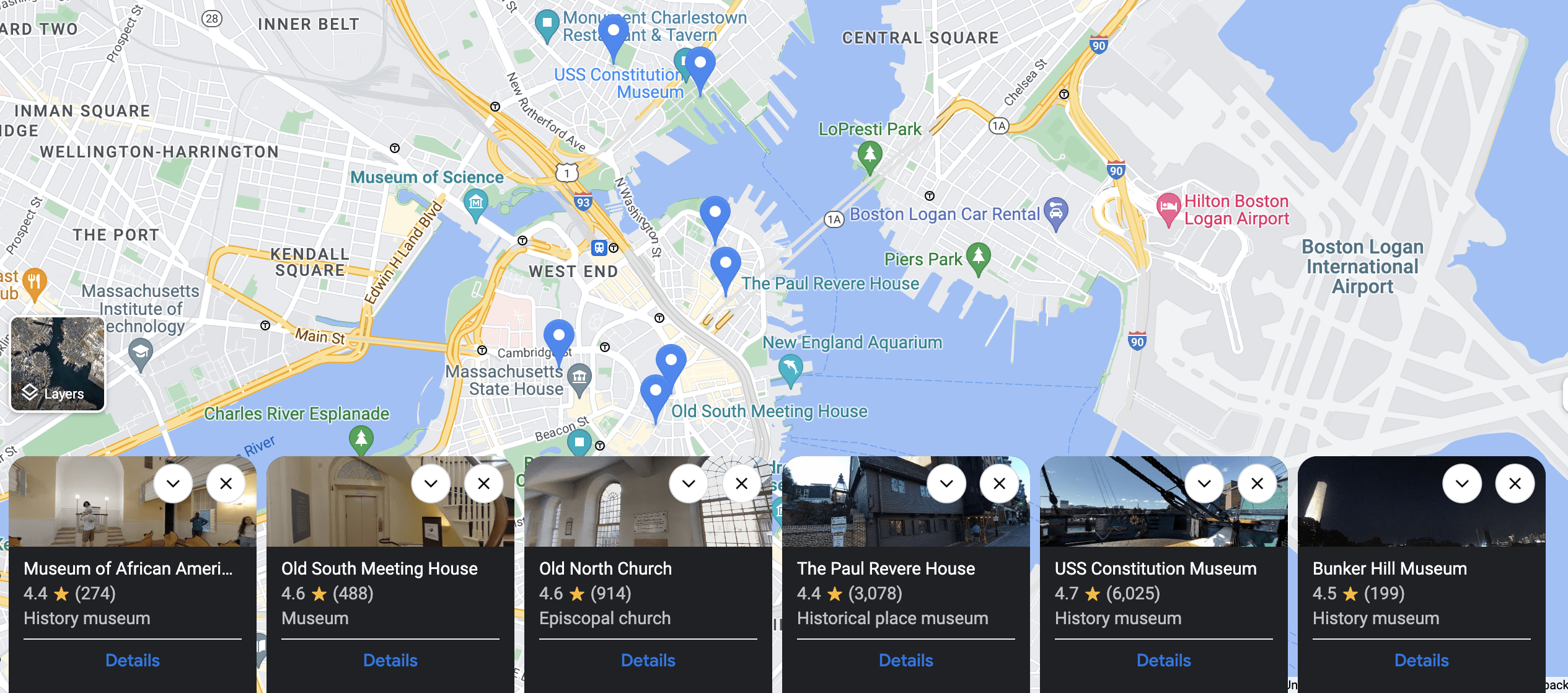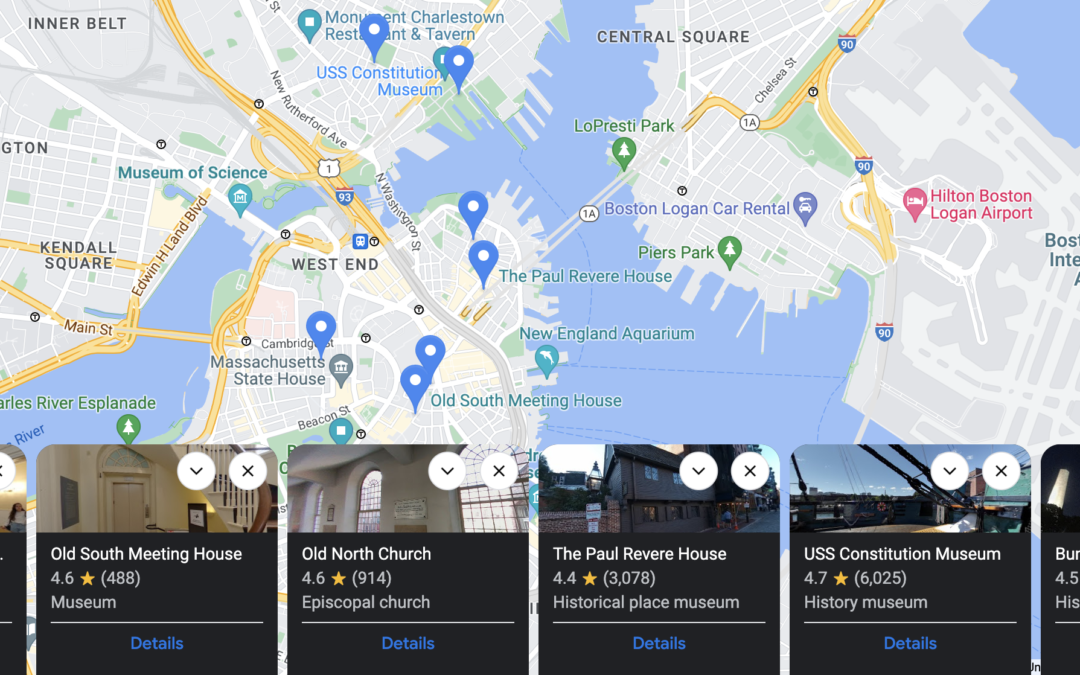Place Based Learning
Written by: Zobeida Chaffee-Valdes
As part of my position with the National Parks of Boston, I had the pleasure of participating in the 2022 Place Based Learning Teacher’s Institute. This week-long seminar is designed to build relationships between teachers at Boston Public Schools and the historic sites along the Freedom Trail and Black Heritage Trail. This year, the partner sites that teachers visited and collaborated with included the Museum of African American History, Revolutionary Spaces (Old South Meeting House and the Old State House), the Paul Revere House, Old North Church, the USS Constitution Ship and Museum, and the Bunker Hill Memorial and Museum. Participating educators, who teach a broad range of subjects and grades, worked closely with an assigned site to develop appropriate programming for the age groups they work with. During the school year, each teacher will be able to take their classes to these sites on a field trip to engage in place-based learning.

This institute demonstrates a mutually beneficial relationship between local educators, the National Park Service, and the historic sites we work with. The feedback participating teachers provided museum staff proved invaluable for creating new, and engaging, educational programming, and for addressing potential issues with the programming they have already developed for class visits. The institute also provided teachers the chance to learn about more local opportunities to engage their students in place based learning, and acted as a space for educators to collaborate and share resources.
The pandemic completely upended the American education system in 2020, when teachers suddenly had to pivot to online and hybrid instruction models. One of the many elements of a “normal” classroom experience that ground to a halt during the pandemic were field trips. With classrooms meeting remotely, and many museums and historic sites closed, teachers had very few opportunities to engage their students in place based learning, which serves as an important way to get children invested in different academic subjects and develop a passion for learning. While the lack of field trips in the last two years may not be the top concern or priority for most teachers as they navigated school closures and pandemic restrictions, the loss was still clearly felt, and one of the themes that came up time and again during the institute was an expressed desire to make up for lost time. This was especially felt for teachers of younger students, who often benefit the most from engaging in learning activities outside the classroom.
If the pandemic had any silver linings for this situation, though, it’s that it provided many of our partner sites and organizations the time to recommit to developing and improving their educational programming, and their relationships with local school districts. The Place Based Teaching Institute is just one of Boston National Parks’ educational outreach initiatives, and our partner sites find even more ways to connect with local schools and educators. At the center of this mission is to get students outside, energized, and excited about learning about Boston’s history, ecology, and culture.
Experiencing the Place Based Teaching Institute was incredibly valuable for me, as an early-career Public Historian. Witnessing the formation of new professional collaborative relationships between public historians/museum workers and classroom educators gave me more insight into how to foster these mutually beneficial relationships, and meet the needs of multiple stakeholders. I also greatly appreciated the chance to connect with these teachers on a personal level, and source their feedback on my own interpretive and digital work at Boston National Parks.
